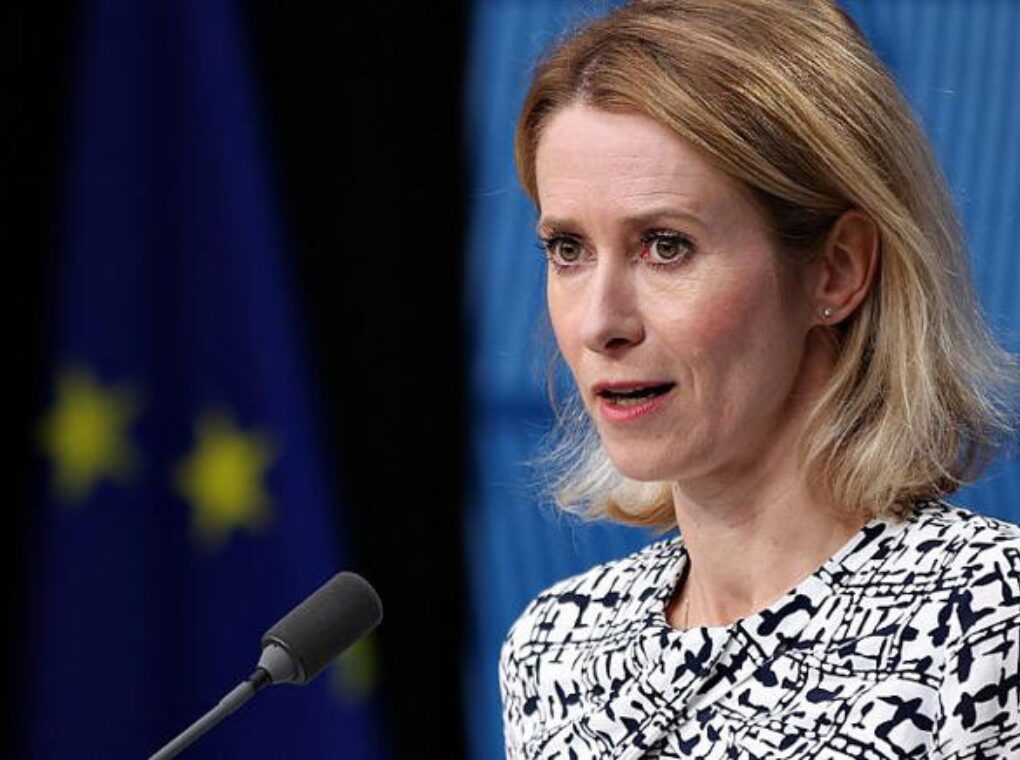EU Foreign Policy Chief Kaja Kallas has ignited vigorous debate across Europe after stating that “supporting Ukraine is a bargain compared to the cost of Russia’s victory.” The remark, delivered during a press briefing following high-level EU foreign policy talks, underscores Brussels’ sharpened stance on the strategic and financial stakes of the war — a conflict that continues to reshape Europe’s security landscape.
Kallas, known for her firm position on Russian aggression and long-standing advocacy for stronger European defense coordination, framed the statement as a pragmatic evaluation rather than a dismissal of the human suffering caused by the conflict. Her comments reflect the European Union’s evolving approach as the war heads into its fourth year, with escalating battlefield dynamics and rising concerns over Moscow’s hybrid warfare tactics.
A Strategic Rationale Behind the Controversial Phrase
Kallas’s “bargain” comment was delivered in the broader context of assessing the long-term cost of a Russian victory. In her full remarks, she stressed that the price of allowing Ukraine to fall — whether measured in geopolitical instability, economic fallout, or the risk of future military escalations — would vastly exceed the financial commitments Europe is making today.
“Wars are lost by whoever runs out of money or soldiers first,” Kallas said. “The cost of failing to support Ukraine would be borne by all Europeans for generations.”
Her analysis echoes longstanding concerns from defense experts that a Russian victory could embolden further aggression, potentially threatening NATO’s eastern flank, disrupting supply chains, and undermining democratic institutions across the continent.
EU Policy and Funding Commitments Intensify
Kallas’s comments come at a time when the EU is attempting to maintain unity on Ukraine policy despite internal disagreements among member states. Since 2022, the bloc has provided more than €100 billion in financial, humanitarian, and military assistance. However, with inflation pressures, varying national priorities, and political divisions, sustaining this momentum has become increasingly challenging.
Germany recently announced an increase in its annual aid to Ukraine, rising to €11.5 billion from 2026 — a move Kallas praised as “essential for European security.” She also reiterated her support for channeling profits from frozen Russian assets toward Ukraine’s defense, a proposal that has gained traction in Brussels but remains contentious among legal experts.
The EU is expected to unveil its 20th sanctions package targeting Russia in the coming weeks, focusing on halting Moscow’s access to advanced technologies and financial channels that fuel its war machinery.
Global Military Dynamics: Puerto Rico’s Base Reopens
Parallel to Europe’s intensified involvement, global military strategy is shifting in response to the conflict. The recent reopening of the Roosevelt Roads Naval Station in Puerto Rico for expanded U.S. military operations underscores Washington’s own recalibration of defense posture.
While the base reopening is not directly linked to the EU’s decision-making, it reflects a broader geopolitical reality: major powers are reinforcing strategic positions worldwide as the Russia-Ukraine war continues to ripple across regions. For Europe, these developments further emphasize the interconnected nature of global security — a theme Kallas highlighted in her remarks.
Political Risk, Public Fatigue, and the Messaging Battle
Public reaction to Kallas’s phrasing has been mixed. Supporters praise her candor, arguing that European leaders must communicate the stakes clearly if they expect citizens to support long-term commitments to Ukraine. Critics, however, accuse her of reducing a devastating war to an economic calculation, arguing that such language risks alienating voters already fatigued by rising energy costs and domestic economic concerns.
The remark also arrives amid growing political turbulence in several EU capitals, where far-right and populist parties have seized on war-weariness to advocate for reducing support to Ukraine. These parties often amplify narratives aligned with Kremlin messaging, intensifying the challenge of maintaining public consensus.
A Defining Moment for Europe’s Security Doctrine
Despite the controversy, one point remains clear: Kallas’s statement reflects a larger shift in European security doctrine. The war in Ukraine has forced the EU to confront questions about its role as a geopolitical actor, its military preparedness, and the cost of inaction in the face of authoritarian aggression.
For policymakers like Kallas, supporting Ukraine is not merely an act of solidarity — it is a calculated investment in the stability of Europe’s future.
As EU member states prepare for another year of difficult decisions, the debate sparked by her “bargain” remark highlights the delicate balance between strategic calculus and public sentiment. With no clear end to the conflict in sight, Europe’s political, economic, and moral commitments will only grow more complex.
